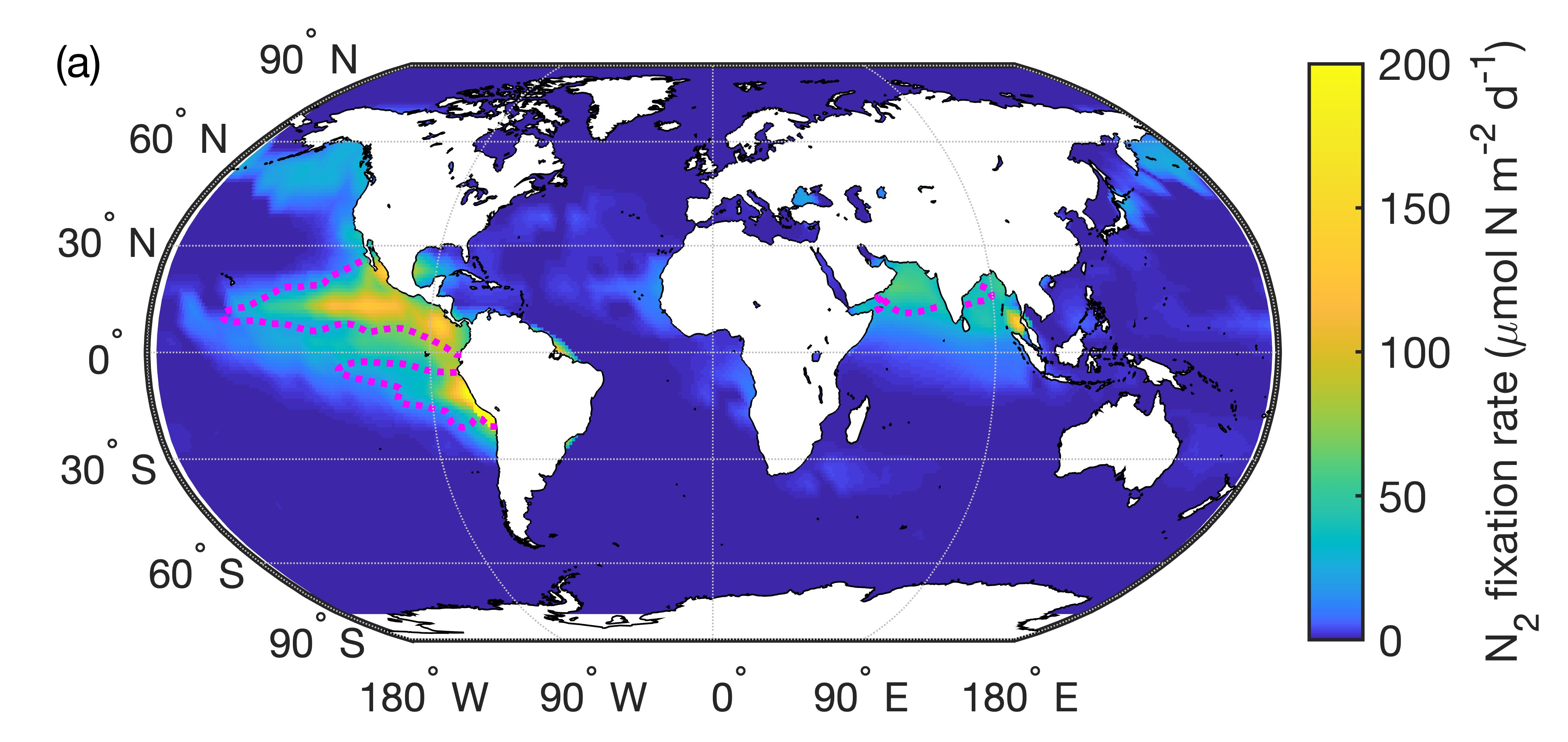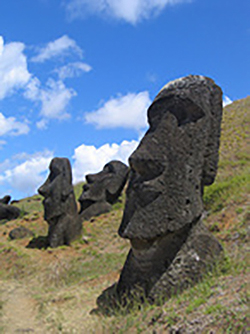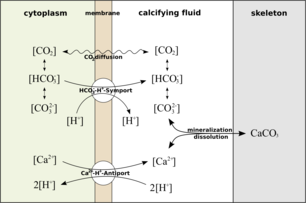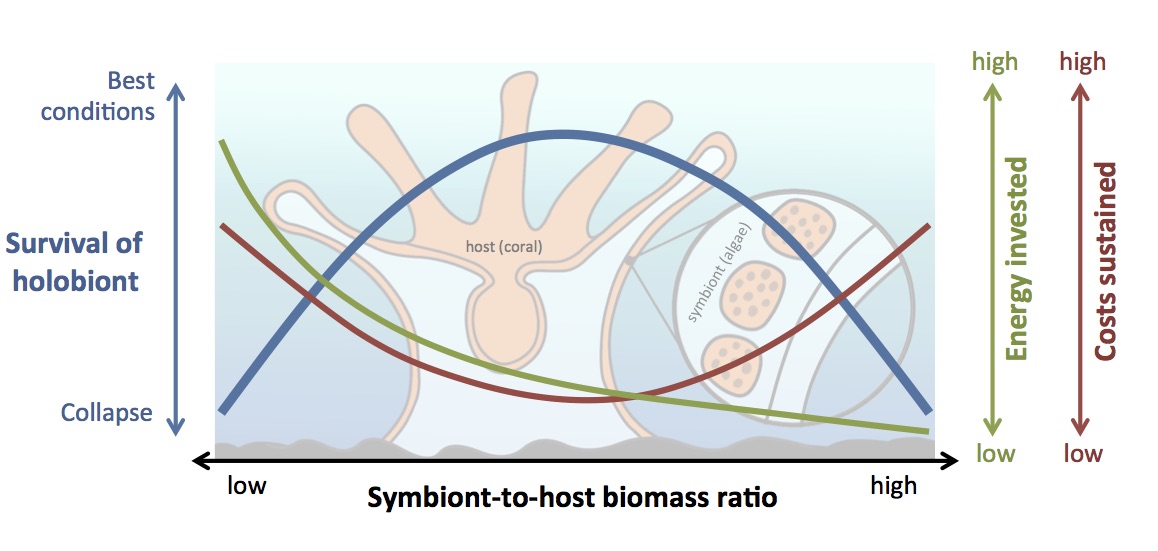"[...] la filosofia naturale è scritta in questo grandissimo libro che continuamente ci sta aperto innanzi agli occhi, io dico l’universo, ma non si può intendere se prima non s’impara a intender la lingua e conoscer i caratteri nei quali è scritto. Egli è scritto in lingua matematica, e i caratteri son triangoli, cerchi ed altre figure geometriche, senza i quali mezzi è impossibile a intenderne umanamente parola; senza questi è un aggirarsi vanamente per un oscuro labirinto."
"[...] natural philosophy is written in that great book which ever lies before our eyes, I mean the universe, but we cannot understand it if we do not first learn the language and grasp the symbols, in which it is written. This book is written in the mathematical language, and the symbols are triangles, circles, and other geometrical figures, without whose help it is impossible to comprehend a single word of it; without which one wanders in vain through a dark labyrinth."
Il Saggiatore, Galileo Galilei (1623)
Research activities
Our research activities involve the modelling and analysis of biological, ecological and socioeconomic systems. We are particularly interested in the organisation of such systems and in their emergent properties. We typically develop and work with continuous-time, differential equation models and agent-based models and we touch on aspects pertaining to systems theory, nonlinear dynamics, collective behaviour, evolution, and acclimation. Some of our current projects focus on biodiversitiy, incuding biodiversity and ecosystem function relationships, biogeochemical cycling of carbon and other major elements, N2 fixation, biogenic calcification and ocean acidification, extreme paleoclimatic events and their connections of ocean biogeochemistry, impact of pollution on seabirds and marine megafauna, trait adaptation, behavioural economics, opinion dynamics, and collapse of ancient societies. Plankton ecosystems, nitrogen fixation, coral reefs, human-resource interactions, and cognitive biases are at the centre of our current research activities.

Research highlights
Sea level change and the tragedy of cognition
Before even thinking about mitigation or adaptation strategies for addressing the expected raise in sea level or other climate change problems, we need to convince the general public that global warming and sea level change are actually happening and are human-made! It is not sufficient that we reduce the uncertainties in our climate predictions, or that we improve scientific literacy among the general public, or that we broaden our dissemination efforts. Cognitive sciences have shown us repeatedly that facts do not change people minds because we humans are affected by cognitive biases, some kind of systematic errors that make us deviating from rational decision-making.

Figure: Frequencies of a ‘pro-environmental agreement’ obtained from an ensemble of 1000 simulations initialised with a distribution of opinions based on the ‘six Americas’.
We developed an Agent-Based Model in which agents are characterised by initial opinions on global warming (the distribution of these initial opinions is based on the ‘six Americas’), agents are characterised by a certain level of confirmation bias, and the way they communicate their opinions with one another is characterised by ambiguity noise. Ambiguity noise is especially relevant in the debate about sea level change because sea level change is a complex topic and, since the general public rely strongly on social information to form opinions on this issue, the debate about this issue is affected by misunderstandings and interpretation errors. Surprisingly, we find that in the presence of a moderate confirmation bias, pro-environmental agreement is highest only if a ‘right’ amount of ambiguity characterises communication between agents (area marked with 'e' in the Figure above, panel A).
NEW→ P. Steiglechner, P.E. Smaldino & A. Merico (2025). How opinion variation among in-groups can skew perceptions of ideological polarization. PNAS Nexus, 4(7), 1–10.
P. Steiglechner, M.A. Keijzer, P.E. Smaldino, D. Moser & A. Merico (2024). Noise and opinion dynamics: How ambiguity promotes pro-majority consensus in the presence of confirmation bias. Royal Society Open Science. 11(4).
P. Steiglechner, P.E. Smaldino, D. Moser & A. Merico (2023). Social identity bias and communication network clustering interact to shape patterns of opinion dynamics. Journal of The Royal Society Interface, 20(20230372).
N2 fixation in the ocean
Nitrogen is an essential element for life on Earth. Despite this, nitrogen can be scarce in the environment because it primarily occurs in a form (N2) that is not bio-available to most organisms. Some bacteria found in marine waters can convert N2 to ammonia (a process known as N2 fixation), and thereby supply the marine food web with bio-available nitrogen. N2 fixation is believed to be restricted within the tropical and subtropical oceans and to be mainly performed by cyanobacteria. Recent observations reveal the presence of non-cyanobacterial (heterotrophic) N2 fixers all over the globe.
Since, high levels of oxygen combined with low levels of dissolved organic matter in seawater prevent N2 fixation, the occurrence of N2 fixation in a variety of environments constitute a great puzzle. It is speculated that N2 fixation can take place on sinking marine particles, but it is still unclear how this occurs and to what extent. We are developing mathematical models for unicellular heterotrophic bacteria growing on sinking marine particles to solve these puzzles.

The map above, produced by our models, shows a global distribution of depth-integrated N2 fixation rates by heterotrophic bacteria in sinking marine particles at high resolution.
NEW→ S. Chakraborty, K.H. Andersen, A. Merico & L. Riemann (2025). Particle-associated N2 fixation by heterotrophic bacteria in the global ocean, Science Advances, 11(8):1–15.
S. Chakraborty et al. (2021). Quantifying nitrogen fixation by heterotrophic bacteria in sinking marine particles, Nature Communications, 12(4085):1-14.
Vulnerability of coral reef habitats

Coral reefs are threatened by global and local stressors and they appear to respond differently to different environmental stressors. Using a global dataset of coral reef occurrence as a proxy for the long-term adaptation of corals to environmental conditions in combination with global environmental data, we could quantify the impacts of global (ocean warming and acidification) and local (eutrophication) stressors on coral reef habitat suitability. Our findings revealed that, in the not-so-distant future, only 6% of the reefs worldwide will be unaffected by local and global stressors and can thus act as temporary refugia. Local stressors, driven by nutrient increase, will affect 22% of the reefs worldwide, whereas global stressors will affect 11% of the reefs. The remaining 61% of the reefs will be simultaneously affected by local and global stressors. Our results showed that appropriate wastewater treatments can mitigate local eutrophication and could increase areas of temporary refugia to 28% allowing us to ‘buy time’ while international agreements are found to abate global stressors.
Y. Guan, S. Hohn, C. Wild & A. Merico (2020). Vulnerability of global coral reef habitat suitability to ocean warming, acidification and eutrophication, Global Change Biology, 26, 5646-5660.
 The Slow Demise of Easter Island
The Slow Demise of Easter Island
Easter Island has been considered a general model of human-environment interactions on a global scale and its supposed social-ecological collapse is often taken as a grim warning for our society. However, the island’s detailed history in relation to the rise and fall of the human population and to the disappearance of the forest, remains controversial. Is Easter Island a paradigm for resource overexploitation and self-destruction (ecocide), for a society destroyed by colonialism and slavery (genocide), or rather an example of a slow and long fall (slow demise)? Using a mathematical model, we showed that out of these three possibilities only the slow demise can best explain the available archeological evidence.
P. Steiglechner & A. Merico. Spatio-temporal patterns of deforestation, settlement and land use on Easter Island prior to European arrivals (2022). In: V. Rull and C. Stevenson (Editors), The Prehistory of Rapa Nui (Easter Island): Developments in Paleoenvironmental Research, Volume 22. Springer.
A. Merico (2017). Models of Easter Island human–resource dynamics: advances and gaps, Frontiers in Ecology and Evolution, 5(154):1-7.
G. Brandt & A. Merico (2015). The slow demise of Easter Island: insights from a modelling investigation, Frontiers in Ecology and Evolution, 3(13), 1-12.
Coral calcification and ocean acidification
We developed a model for studying coral polyp calcification. The model simulates the carbonate system in four different compartments: the seawater, the polyp tissue, the coelenteron, and the calcifying fluid. The model is adjusted to a state of activity as observed by direct microsensor measurements in the calcifying fluid. As aragonite precipitation removes carbonate ions, total alkalinity and dissolved inorganic carbonate (DIC) decrease. Simulated CO2 perturbation experiments reveal decreasing calcification rates under elevated pCO2 despite strong metabolic control of the calcifying fluid.

Decreasing coral calcification at elevated seawater pCO2 is the result of increased CO2 diffusion into the calcification site. However, we found that CO2 diffusion alone is not sufficient to sustain the observed calcification rates, an additional mechanism must exist to supplement carbon into the calcifying fluid. The model shows that calcification occurs only when a bicarbonate transport in symport with protons is considered.
S. Hohn & A. Merico (2015). Quantifying the relative importance of transcellular and paracellular ion transports to coral polyp calcification, Frontiers in Earth Science, 2(37), 1-11.
S. Hohn & A. Merico (2012). Modelling coral polyp calcification in relation to ocean acidification, Biogeosciences, 9, 4441-4454.
Indonesian peatland degradation and the global carbon cycle
Recent studies have estimated that CO2 released from drained peatland is between 355 Mt y−1 and 855 Mt y−1 in 2006 of which 82% mainly coming from Sumatra and Kalimantan. The effects of these emissions on the global carbon cycle are largely unknown. We investigated the effects of different emission and functioning scenarios of the "Indonesian carbon system" on the global carbon cycle. The Indonesian carbon system comprises various carbon reservoirs including the tropical rain forest, the peatlands, the seagrasses, the coral reefs, and the neritic plankton. We assessed and quantified the role of each of these components to different regional anthropogenic perturbations with a box model of the global ocean to identify potential positive or negative feedbacks to the global carbon cycle.
J.F. Abrams, S. Hohn, T. Rixen & A. Merico (2018). Sundaland peat carbon dynamics and its contribution to the Holocene atmospheric CO2 concentration. Global Biogeochemical Cycles, 32.
J.F. Abrams, S. Hohn, T. Rixen, A. Baum & A. Merico (2016). The impact of Indonesian peatland degradation on downstream marine ecosystems and the global carbon cycle. Global Change Biology, 22(1), 325-337.
Trait-based modelling
We develop ecological models based on functional traits. Traits are characteristics or observable features of an organism that may be inherited or acquired and are generally considered as reflecting adaptations to variation in the physical and biotic environment and trade-offs.
 Trait-based models can be constructed by incorporating principles derived from evolutionary biology and quantitative genetics to produce appropriate parameterisations of community behaviour. The use of traits to predict community composition can explain the organisation of ecological systems and predict their re-organisation in a changing environment. Trait-based models are able to describe the ecological community or the ecosystem as a whole entity making them also suitable for studying feedbacks between life and its environment on evolutionary time scales.
Trait-based models can be constructed by incorporating principles derived from evolutionary biology and quantitative genetics to produce appropriate parameterisations of community behaviour. The use of traits to predict community composition can explain the organisation of ecological systems and predict their re-organisation in a changing environment. Trait-based models are able to describe the ecological community or the ecosystem as a whole entity making them also suitable for studying feedbacks between life and its environment on evolutionary time scales.
B. Post, E. Acevedo-Trejos, A.D. Barton & A. Merico (2024). The XSO framework (v0.1) and Phydra library (v0.1) for a flexible, reproducible and integrated plankton community modeling environment in Python, Geoscientific Model Development, 17, 1775-1195.
N.A. Raharinirina, E. Acevedo-Trejos & A. Merico (2022). Modelling the acclimation capacity of coral reefs to a warming ocean, PLOS Computational Biology, 18(5):e1010099.
N.A. Raharinirina, G. Brandt & A. Merico (2017). A Trait-based model for describing the adaptive dynamics of coral-algae symbiosis, Frontiers in Ecology and Evolution, 5(31), 1-11.
E. Acevedo-Trejos, E. Marañón & A. Merico (2018) Phytoplankton size diversity and ecosystem function relationships across oceanic regions, Proceedings of the Royal Society B, 285.
E. Acevedo-Trejos, G. Brandt, J. Bruggeman & A. Merico (2015). Mechanisms shaping size structure and functional diversity of phytoplankton communities in the ocean, Scientific Reports, 5(8918), 1-8.
Human cooperation in common pool resource systems
Many marine ecosystems that are exploited for natural goods can be regarded as common pool resources. The management of such systems requires a detailed knowledge of the ecological resource under investigation and of the human behaviour.
We developed a simple adaptive model with harvest behaviour as the main continuous trait describing the coupled dynamics of a renewable common pool resource and a group of human consumers. The balance between instantaneous harvest and potential future harvest determines the degree of cooperation among consumers. Consistent with Hardin's tragedy of the commons and numerous real examples, we found that maximising the instantaneous harvest of the common pool resource leads to declining long-term yields and finally to a collapse of the resource-consumer system. By contrast, incorporating potential future returns into the consumer fitness function significantly enhances the degree of cooperation.
K.A. Owusu, M. M. Kulesz, & A. Merico (2021). Communication among harvesters leads to sustainable fishing behaviour in a continuous time common pool resource experiment. Frontiers in Marine Science, 8(644056).
K.A. Owusu, E. Acevedo-Trejos, M.M. Fall & A. Merico (2020). Effects of cooperation and different characteristics of Marine Protected Areas in a simulated small-scale fishery. Ecological Complexity, 44(100876).
K.A. Owusu, M.M. Kulesz & A. Merico (2019). Extraction behaviour and income inequalities resulting from a common pool resource exploitation. Sustainability, 11(536).
G. Brandt, M.M. Kulesz, D. Nissen & A. Merico (2017). OGUMI — A new mobile application to conduct common-pool resource experiments in continuous time. PLoS ONE, 12(6):e0178951.
G. Brandt & A. Merico (2013). Tipping points and user-resource system collapse in a simple model of evolutionary dynamics, Ecological Complexity, 13, 46-52.
G. Brandt, A. Merico, B. Vollan, & A. Schlüter (2012). Human adaptive behavior in common pool resource systems, PLoS ONE, 7(12), e52763.
Third-party projects
NEW→ SEASTRONG: Stronger together: The role of connectivity in safeguarding functioning coastal ecosystems under global change (EU, Horizon Europe).
N2FIXHB: Uncovering the mechanisms of N2 fixation by oceanic free-living heterotrophic bacteria (DFG).
WATER: Effects of environmental change on waterbird trait diversity and ecosystem services in tropical coastal wetlands (von Humboldt / Capes)
HARVEST: Harvest behaviour in common pool resource systems: data analysis and modelling of dynamic decision making (DAAD / AIMS)
ADACAP: Modelling the adaptive capacity of plankton communities in a changing ocean (DFG)
SABER: Strandings of marine megafauna along the Brazilian coast: assessment of environmental and anthropogenic factors (von Humboldt / Capes)
SPICE III: Science for the Protection of Indonesian Coastal Ecosystems (BMBF)
EPOCA: European Project on OCean Acidification (EU)
Events
Winter School: "Computational modelling in marine ecology, fisheries and climate", 27-31 January 2025, ACECoR, Cape Coast, Ghana
Symposium: "15th International Coral Reef Symposium (ICRS2022)", 3-8 July 2022, Bremen, Germany
Workshop: "Fish functional diversity and governance nexus: a new blue economy paradigm?", 6-8 June 2022, AIMS, Mbour, Senegal
Spring School: "A mathematical modelling perspective on ecology, biodiversity and blue economy", 30 May - 3 June 2022, AIMS, Mbour, Senegal
Symposium (virtual): "14th International Coral Reef Symposium (ICRS2021)", 19-23 July 2021, Bremen, Germany
Winter School: "Mathematical Modelling of Ecological and Socioeconomic Systems", 27-31 January 2020, AIMS, Mbour, Senegal
Workshop: "Trait-Based Approaches to Ocean Life", 18-21 August 2019, Chicheley Hall, Bukingamshire, UK
Winter School "Applied Non-Linear Dynamics & Scientific Writing", 4-8 February 2019, AIMS, Mbour, Senegal
Winter School: "Exploring Complex Systems Using Computational Tools", 3-9 February 2018, AIMS, Mbour, Senegal
Workshop: "Trait-based approaches to ocean life", 20-23 August 2017, Solstrand, Bergen, Norway.
Workshop: "The Carnian Pluvial Episode (Late Triassic): Climate Change and Evolutionary Innovations", 16-17 May 2017, HWK, Delmenhorst, Germany.
Workshop: "Plankton biodiversity, dynamic eco-physiology, and ecosystem function", 15-17 February 2017. ZMT, Bremen, Germany.
Workshop: "Trait-based approaches in ecology", 11 November 2014. ZMT, Bremen, Germany.
Workshop: "Mathematichal tools for understanding and managing fisheries: synthesizing and refining data and models", 7-9 May 2014. Mbour, Senegal.
Workshop: "Trait-based approaches and other tools to better understand coral reef functioning", 16.12.2013. ZMT, Bremen, Germany.
Workshop: "Trait evolution and adaptation", 12.06.2013. ZMT, Bremen, Germany.
Workshop: "CArbon and Nutrients through Ocean Ecosystems (CANOE)", 17.08.2012. Geomatikum, Hamburg, Germany.
Workshop: "Evolution of cooperation in socio-ecological systems", 28 September 2011. ZMT, Bremen, Germany.
Selection of media coverage of our work
NEW→ NeuroscienceNews.com; Perception or Reality? Rethinking How Polarized We Really Are
NEW→ MDR Wissen; Wieso die Zukunft des Südsee-Staats Tuvalu so schwer vorherzusagen ist
NEW→ der STANDARD: Was tun, wenn Politik Familien und Freundschaften entzweit?
NEW→ TAZ: Nützliches Schneetreiben Bremer Forscher errechnen, wie Bakterien ohne Licht Stickstoff binden
Tagesschau: Müllschlucker retten die Meere nicht
MDR Wissen (radio interview): Plastikmüll aus dem Meer: es wird nicht einfach, nicht schnell und nicht billig
MDR Wissen: Schwimmende Müllschlucker können das Problem nicht lösen
Die Zeit: Schwimmende Müllschlucker führen nicht zu sauberen Meeren
Regioni e ambiente: Rifiuti di plastica negli oceani: tecnologia incapace di risolvere il problema
Forbes: Surface Clean-Up Technology Won’t Solve Ocean Plastic Problem
The Independent: Ocean plastic pollution set to double within 30 years – and clean-up technology won’t solve problem
National Geographic: Une extinction de masse à l’origine du règne des dinosaures
CNN: A previously unknown mass extinction gave rise to dinosaurs
DFG: Phytoplankton: schön, wichtig und gefährdet
Deutsche Welle: Fishing for sustainability
The Times: Ammonites wiped out when asteroid turned oceans acid
The Mirror: Asteroid, ocean acidification and ammonites at the end-Cretaceous
Spektrum der Wissenschaft: Das Rätsel von Rapa Nui
Landeszeitung Lüneburg: Ökologischer Tanz auf der Rasierklinge
Leibniz Association: Das Rätsel der Rapa Nui




